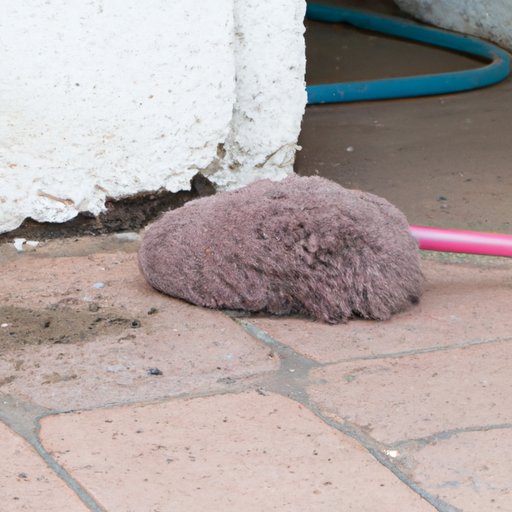
Introduction
Mice are a common household problem, and their presence can lead to serious health risks. From spreading diseases to contaminating food and damaging property, mouse infestations can cause a lot of trouble for homeowners. This article aims to help the audience understand the risks associated with mice and the steps they can take to prevent them.
Risks of Disease Transmission by Mice and Ways to Prevent Mouse Infestations
Mouse infestations can lead to the spread of various diseases, including Hantavirus, Salmonellosis, and Lymphocytic Choriomeningitis (LCM). These diseases are typically spread through contact with mouse droppings, urine, and saliva. To avoid mouse infestations, it’s important to seal cracks and openings in walls and floors to prevent mice from entering your home. Additionally, it’s important to keep your home clean and free of clutter, as this can provide hiding places for mice. Mouse traps and poison baits can also be effective at controlling infestations.
Health Consequences of Having Mice in the Home and Tips for Cleaning and Disinfecting Mouse-Infested Areas
Having mice in the home can lead to various health consequences, including allergies, asthma, and the spread of disease. If you suspect that you have a mouse infestation, it’s important to take steps to clean and disinfect mouse-infested areas. This can include wearing gloves and a mask while cleaning, using a disinfectant solution to clean surfaces, and using a vacuum with a HEPA filter to clean droppings and urine. Additionally, it’s important to dispose of all waste safely to avoid further contamination.
Comparison of Different Diseases That Can Be Transmitted by Mice
While there are several diseases that can be transmitted by mice, some are more common and severe than others. Hantavirus, for example, is a rare but potentially fatal disease that is spread through contact with mouse droppings. On the other hand, Salmonellosis is a more common illness that is spread through contact with contaminated food or water. Lymphocytic Choriomeningitis (LCM) is another disease spread by mice which can cause flu-like symptoms and even meningitis in severe cases. It’s important to take steps to prevent mouse infestations and minimize the risk of these diseases.
Address Common Misconceptions About Mice and Disease Transmission
There are many misconceptions about mice and disease transmission, including the belief that pet cats can control mouse infestations. While cats may help to keep mice away, they are not a foolproof solution to the problem. Additionally, many people believe that mice are only a problem in dirty or unsanitary homes, but this is not always the case. Mice are attracted to warmth and food sources, so even clean homes can be susceptible to infestations. It’s important to understand the risks associated with mice and take steps to prevent and control infestations.
The Impact of Mouse-Borne Disease on Public Health and Ways to Reduce Risks
Mouse-borne diseases can have a significant impact on public health, particularly in densely populated areas. To reduce the risks associated with mouse infestations, it’s important to keep homes and public spaces clean and free of debris. Communities can also work together to identify and address mouse infestations in public spaces to minimize the risk of disease transmission.
Safely and Humanely Remove Mice from Your Home
While it’s important to prevent and control mouse infestations, it’s also important to do so in a safe and humane way. Live traps can be an effective way to capture and release mice outside of your home. Additionally, prevention methods such as sealing cracks and keeping food stored properly can help to prevent future infestations. If you must use poison bait, be sure to keep it out of reach of children and pets.
Conclusion
Mouse infestations can pose serious health risks, but there are steps you can take to prevent and control them. By keeping your home clean and free of clutter, sealing cracks and openings, and using traps or poison baits, you can minimize the risk of infestations. If you do have a mouse infestation, it’s important to clean and disinfect mouse-infested areas to avoid the spread of disease. Remember to take steps to remove mice from your home humanely and safely to avoid further harm to yourself, your family, and the environment.





